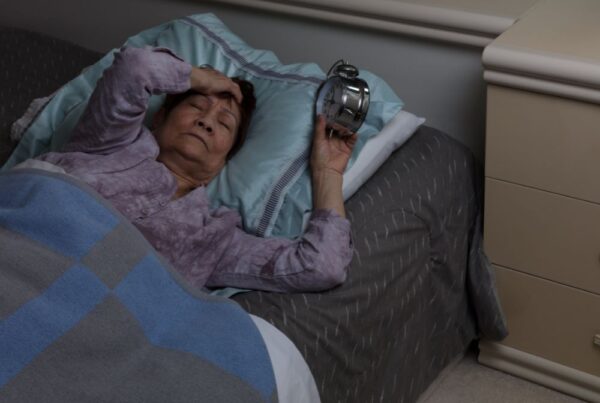In Home Care for Seniors: A Comprehensive Guide to Aging Comfortably at Home
As our population ages and families navigate the complex landscape of senior care, one truth remains constant: most older adults want to remain in the comfort and familiarity of their own homes. The concept of “aging in place” has become more than just a preference—it’s a movement that’s reshaping how we approach senior care across the United States.
For families facing the challenging decisions that come with caring for aging loved ones, in home care for seniors represents a compassionate, practical solution that honors independence while ensuring safety and well-being. But understanding the full scope of what in home care entails, how to access quality services, and how to make informed decisions can feel overwhelming.
At Advanced Care, located in Mequon, Wisconsin, we’ve dedicated over a decade to helping families navigate this journey with personalized, professional care that enables seniors to thrive in their own homes. This comprehensive guide will walk you through everything you need to know about in home care for seniors, from understanding the basics to making the right choice for your family.
Understanding In Home Care for Seniors
In home care refers to a comprehensive range of supportive services delivered directly at a senior’s residence, designed to assist with daily living activities, promote overall well-being, and ensure safety without requiring relocation to institutional care facilities. This approach to senior care has gained tremendous popularity as families seek alternatives to nursing homes and assisted living facilities that allow their loved ones to maintain their independence and dignity.
The philosophy behind in home care centers on the belief that familiar surroundings, established routines, and personal connections contribute significantly to a senior’s quality of life. Rather than adapting to a new environment during a vulnerable time, seniors can receive the support they need while maintaining the comfort of their own space, surrounded by decades of memories and personal belongings that provide emotional security.
Who Benefits from In Home Care?
In home care serves as an ideal solution for a diverse range of seniors and family situations. According to AARP’s 2021 Home and Community Preferences Survey, approximately 88% of adults aged 65 and older express a strong desire to remain in their homes as they age. This overwhelming preference reflects not just emotional attachment to familiar surroundings, but also recognition of the practical and psychological benefits of aging in place.
Seniors who benefit most from in home care typically fall into several categories. Those who wish to maintain their independence while receiving necessary support find that professional caregivers can provide assistance without compromising their autonomy. Individuals requiring help with daily routines due to physical limitations, mobility challenges, or cognitive changes can receive personalized support tailored to their specific needs and abilities.
The recovery period following surgery or illness often presents temporary challenges that in home care can address effectively, allowing seniors to heal in comfortable, familiar surroundings rather than institutional settings. Additionally, seniors managing chronic conditions benefit significantly from consistent, personalized assistance that helps them maintain their health and quality of life at home.
The statistics surrounding chronic conditions among seniors underscore the importance of accessible care options. According to the National Council on Aging, approximately 80% of older adults have at least one chronic condition, while 68% manage two or more chronic conditions simultaneously. These health challenges often require ongoing support and monitoring that in home care can provide effectively.
The Proven Benefits of Choosing In Home Care
The advantages of in home care extend far beyond simple convenience, encompassing physical, emotional, and psychological benefits that contribute to improved outcomes for seniors and peace of mind for families.
Comfort and Familiarity represent perhaps the most immediately apparent benefits of in home care. Seniors remain surrounded by environments they know intimately—their favorite chair, family photographs, gardens they’ve tended, and neighborhoods where they’ve built relationships over decades. This familiarity provides emotional stability during a time when other aspects of life may be changing due to aging or health challenges.
Research from the National Institute on Aging demonstrates that remaining in familiar environments can positively impact cognitive function and overall well-being for seniors. The mental stimulation provided by familiar surroundings, established routines, and ongoing community connections contributes to better cognitive health outcomes compared to the significant adjustments required by institutional care settings.
Enhanced Independence represents another crucial advantage of in home care. Rather than conforming to institutional schedules and routines, seniors maintain control over their daily lives while receiving targeted assistance only where needed. This approach preserves dignity and autonomy, allowing seniors to make decisions about their care, daily activities, and lifestyle preferences.
Personalized, One-on-One Attention distinguishes in home care from institutional settings where caregivers typically manage multiple residents simultaneously. In home caregivers can focus entirely on one individual’s needs, preferences, and personality, developing deeper understanding and more effective care strategies. This personalized approach often results in better health outcomes, improved emotional well-being, and stronger caregiver-client relationships.
Family Peace of Mind cannot be understated as a benefit of professional in home care. Family members often struggle with guilt, worry, and practical challenges when trying to provide adequate care for aging loved ones while managing their own responsibilities. Professional in home care services provide assurance that trained, qualified caregivers are providing consistent, reliable support, allowing family members to focus on their relationships with their loved ones rather than solely on caregiving tasks.
The growing trust in home care services is reflected in market trends. According to Statista, the U.S. home care market was valued at $100 billion in 2018 and is projected to reach over $225 billion by 2024, indicating widespread recognition of the value and effectiveness of these services.
Comprehensive Services: What In Home Care Includes
Modern in home care encompasses a broad spectrum of services designed to address the varied needs of seniors aging at home. At Advanced Care, we believe every senior deserves a personalized care plan that addresses their unique circumstances, health conditions, and personal preferences.
Personal Care and Hygiene Services form the foundation of many in home care plans. These services include assistance with bathing, ensuring safety and dignity during this essential daily activity. Grooming support helps seniors maintain their appearance and self-esteem, while toileting and dressing assistance preserves independence while providing necessary support. For seniors dealing with memory-related challenges, specialized memory care services address the unique needs of individuals with dementia or Alzheimer’s disease.
Nutrition and Meal Services recognize that proper nutrition is fundamental to healthy aging. Caregivers can assist with grocery shopping, ensuring seniors have access to fresh, appropriate foods that meet their dietary requirements and preferences. Meal preparation services provide balanced, nutritious meals that consider medical conditions, medication interactions, and personal tastes. For seniors who require assistance with eating, feeding support ensures adequate nutrition while maintaining dignity.
Mobility and Safety Support addresses one of the most critical aspects of aging at home safely. Caregivers provide assistance with safe movement throughout the home, reducing fall risks and maintaining mobility. Transfer assistance helps seniors move safely from bed to chair, wheelchair to car, or other transitions that may present challenges. This support enables seniors to maintain active lifestyles while minimizing injury risks.
Medical and Health Oversight ensures that health needs are monitored and addressed proactively. Medication reminders help seniors maintain proper medication schedules, reducing risks associated with missed doses or medication errors. Regular wellness checks, conducted bi-monthly by qualified professionals, monitor changes in health status and identify potential concerns early. Annual comprehensive assessments by registered nurses provide thorough evaluation of health status and care needs, ensuring care plans remain appropriate and effective.
Daily Living and Instrumental Support addresses the practical aspects of maintaining a household and managing daily responsibilities. Light housekeeping and laundry services help seniors maintain clean, safe living environments without physical strain. Assistance with organizing mail, managing calendars, and handling administrative tasks reduces stress and ensures important matters receive attention. Transportation services enable seniors to attend medical appointments, social events, and community activities, maintaining connections and access to necessary services.
The Professional Team Behind Quality In Home Care
The success of in home care depends entirely on the qualifications, training, and dedication of the caregiving team. Advanced Care employs over 250 qualified professionals, representing a comprehensive approach to senior care that addresses medical, personal, and social needs.
Experienced Caregivers form the backbone of in home care services, providing direct, hands-on support to seniors in their daily lives. These professionals receive specialized training in senior care, safety protocols, and communication techniques that enable them to provide compassionate, effective assistance while respecting seniors’ independence and dignity.
Care Coordinators serve as the crucial link between families, seniors, and caregiving teams, ensuring that care plans are implemented effectively and adjusted as needs change. These professionals possess expertise in care planning, family dynamics, and resource coordination, helping families navigate the complexities of senior care decisions.
Registered Nurses provide clinical oversight and medical expertise, conducting assessments, monitoring health changes, and ensuring that care plans address medical needs appropriately. Their involvement ensures that potential health concerns are identified early and addressed proactively.
Administrative Support Staff handle the logistical aspects of care coordination, scheduling, and communication that enable seamless service delivery. This behind-the-scenes support ensures that caregivers can focus on providing direct care while families receive consistent communication and support.
The diversity of communities served requires cultural competence and language accessibility. Advanced Care proudly offers bilingual caregivers to support diverse communities throughout Kenosha, Milwaukee, Ozaukee, Racine, Sheboygan, Washington, and Waukesha counties, recognizing that effective communication and cultural understanding are essential components of quality care.
The growing demand for qualified home care professionals reflects the expanding recognition of this care model’s value. The U.S. Bureau of Labor Statistics projects that demand for home health and personal care aides will grow 22% from 2022 to 2032, much faster than the average for all occupations, highlighting the increasing need for these essential professionals.
Getting Started: A Step-by-Step Guide to In Home Care
Beginning the journey toward in home care can feel overwhelming, but a systematic approach helps families make informed decisions and ensure smooth transitions to care services.
Step 1: Schedule a Free Consultation The process begins with a comprehensive consultation that allows care professionals to understand your loved one’s specific needs, preferences, and circumstances. At Advanced Care, this initial consultation is provided at no obligation, allowing families to explore options without pressure. During this consultation, care coordinators assess current abilities, challenges, health conditions, and lifestyle preferences that will inform the development of an appropriate care plan.
Step 2: Create a Customized Care Plan Based on the comprehensive assessment, care professionals develop a detailed care plan that addresses medical needs, personal preferences, safety concerns, and family goals. This personalized approach ensures that care services align with your loved one’s specific requirements rather than applying a one-size-fits-all approach. The care plan serves as a roadmap for service delivery and provides a framework for measuring outcomes and making adjustments as needs evolve.
Step 3: Match with the Right Caregiver The success of in home care often depends on the personal connection between caregiver and client. Care coordinators carefully consider personality compatibility, skill sets, language preferences, and special interests when matching caregivers with clients. This thoughtful matching process increases the likelihood of positive relationships and effective care delivery.
Step 4: Begin Care Services In home care services are available 24/7, with flexible scheduling designed to accommodate your family’s preferences and your loved one’s needs. This flexibility allows care to integrate seamlessly into existing routines rather than disrupting established patterns. Weekend appointments and emergency coverage ensure that support is available when needed, providing families with confidence and peace of mind.
Step 5: Ongoing Assessment and Adjustment Quality in home care doesn’t end with the initial service implementation. Regular assessments ensure that care plans remain appropriate as seniors’ needs evolve. Bi-monthly wellness checks monitor changes in health status, functional abilities, and care satisfaction. Annual comprehensive evaluations provide opportunities for thorough review and adjustment of care plans, ensuring continued effectiveness and appropriateness of services.
Making the Right Decision: Is In Home Care Right for Your Family?
Determining whether in home care represents the best choice for your family requires honest assessment of your loved one’s needs, preferences, and circumstances, as well as your family’s capacity and resources.
Consider whether your loved one values their independence and autonomy. Seniors who have strong attachments to their homes, communities, and established routines often thrive with in home care that allows them to maintain these important connections while receiving necessary support.
Evaluate whether your loved one feels safer and happier at home compared to other care settings. Some seniors experience anxiety or depression when removed from familiar environments, making in home care a psychologically beneficial choice that supports emotional well-being alongside physical care needs.
Assess honestly whether you or other family members are struggling to provide the level of support your loved one needs. Family caregiving, while well-intentioned, can become overwhelming and may not address all aspects of senior care effectively. Professional in home care can supplement family efforts while reducing caregiver stress and burnout.
Consider the financial aspects of care decisions. According to Genworth Financial’s 2023 Cost of Care Survey, in-home care can often be a more cost-effective option than nursing home care or assisted living facilities. The median cost of a home health aide averages around $30 per hour as of 2023, which can be more affordable than institutional care when considering the comprehensive nature of services provided and the ability to customize care intensity based on actual needs.
Why Advanced Care Stands Out in Senior Home Care
With over a decade of dedicated service in Southeast Wisconsin, Advanced Care has built a reputation based on unwavering commitment to safety, comfort, and wellness for seniors aging at home. Our mission centers on helping seniors age confidently in place through compassionate, customized support that addresses the full spectrum of needs—from personal care and mobility assistance to nutrition support and transportation services.
What distinguishes Advanced Care is our holistic approach to senior care that recognizes each individual’s unique circumstances, preferences, and goals. Rather than providing standardized services, we develop personalized care plans that evolve with changing needs and circumstances. Our team of over 250 qualified professionals brings diverse expertise and cultural competence to serve the varied communities throughout Southeast Wisconsin.
Our commitment to quality extends beyond individual care delivery to encompass ongoing education, professional development, and adherence to the highest standards of senior care. We understand that trust is earned through consistent, reliable service delivery and transparent communication with families throughout the care journey.
Taking the Next Step: Beginning Your In Home Care Journey
The decision to explore in home care for a loved one represents a significant step toward ensuring their continued safety, comfort, and independence. Rather than viewing this decision as an ending or loss of independence, consider it as an investment in your loved one’s ability to continue thriving in the environment they love most—their home.
Give your loved one the gift of independence supported by professional care. The combination of familiar surroundings, personalized attention, and professional expertise creates an environment where seniors can continue to flourish while families gain peace of mind knowing their loved ones are safe and well-cared for.
Ready to begin this important journey? Contact Advanced Care today at our Mequon office or schedule a free consultation to discover how we can support your family’s unique needs. Our team is ready to answer your questions, address your concerns, and help you develop a care plan that honors your loved one’s independence while ensuring their safety and well-being.
The path to quality in home care begins with a single conversation. Let us help you take that first step toward a solution that honors your loved one’s desire for independence while providing the professional support they need to age comfortably and safely at home.






